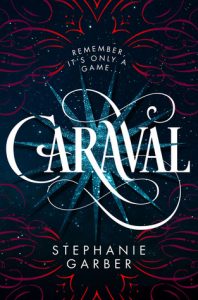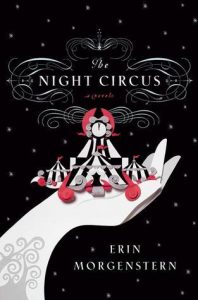The Influence of “BookTube” and Its Effect on the Reading Experience
Nicole Turner//Blog Writer
I was scrolling through my Goodreads account last month and came to a conclusion. My reading year had sucked. Not necessarily in terms of how many books I’ve read, but because I did not enjoy a majority of them. Of the (shameful) 24 books I have read this year, I can honestly say I only loved 4 of them, including a re-read and a book for school! There were books that were disappointing and books that simply weren’t anything special. However, when I looked at the books that I found disappointing, I found that they were ones that had a lot of hype surrounding them and were mostly established by YouTube accounts.

The books that I specifically noticed this with were Caraval by Stephanie Garber and Heartless by Marissa Meyer. These novels were new young adult releases in 2017, causing them to be incredibly hyped up on social media accounts. People were exclaiming that Caraval would satisfy lovers of The Night Circus – a hefty claim since The Night Circus is a favorite of mine. Heartless would be the story behind Alice and the Wonderland, the story we’ve come to know and love, by revealing the intriguing story behind the Red Queen. As with many other young adult releases, YouTubers who discussed books on their channels – or “BookTubers” – were receiving advanced reader copies (or copies of books before they’re released to the public) and creating an air of excitement and intrigue around their releases. I was anxiously awaiting the day when I could purchase these books for my own. When the day came that I read the novels – and admittedly was entertained enough to finish them – I was underwhelmed. I read them back to back and I pushed through because the hype that surrounded them on social media was plaguing my ability to admit that they weren’t as good as I expected. It was only after I had finished both novels, and could think about what I had read over the past few days, that I was able to separate my thoughts from the ones given to me by social media influencers.
Overall, these books let me down by not living up to the expectations created for them. As I thought about this, I couldn’t ignore the glaring influence of marketing through social media. For countless young adult releases – including Caraval and Heartless – the publishers provided advanced reader copies for social media influencers. Publishers send advance reader copies to people who are knowledgeable about literature and with a large audience to speak to, in exchange for them to read and review it on their platform of choice. I can’t help but wonder if this taints the true opinion of these influencers. I wonder if the fear of losing the privilege of advanced reader copies encourages them to give more positive reviews and thus creates the unwarranted hype surrounding the novels.
People on YouTube who make videos about books are prominent influencers in the literature world, especially with young adult literature. They are given opportunities that would otherwise be difficult to come by, not only through sponsorships with publishing houses, but also opportunities to write their own books, as seen with Sasha Alsberg and Christine Riccio. BookTubers are constantly reviewing and suggesting books, often being viewed as trusted advisors. The number of subscribers they have leads to their audiences to believe that they are credible. This has a strong effect on the creation of hype surrounding a book because if many influencers are making positive reviews on a new release, audiences are prone to believe what they say.

I also started thinking about how negative reviews of books are often unwelcome on the internet. The surge of the “unpopular opinions” video on YouTube was always prefaced with the influencer providing a disclaimer and reminding the audience that these are their own opinions and that they are not trying to change anyone else’s opinions. It’s quite sad that a person cannot speak their mind without first having to prepare for the strong negative comments that are expected in response to an honest review. People should be able to share their opinions and critical reviews of books to viewers who are respectful towards another’s opinion, whether they agree or disagree. Between the marketing ploys of publishing houses and the unwelcoming atmosphere of the internet, there’s an abundance of positive reviews and a suppression of honest reviews for books that creates too much hype and leads to disappointing reading experiences.
